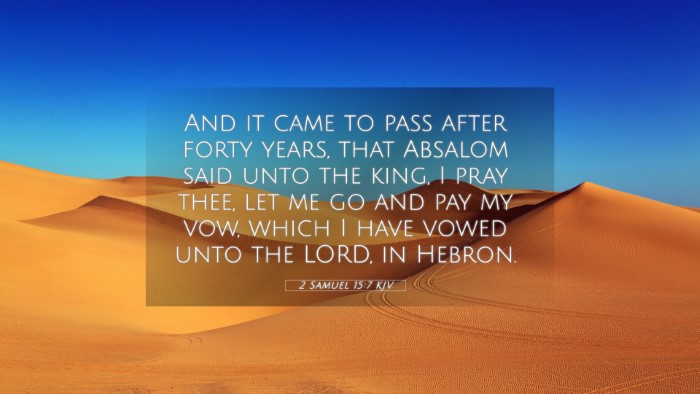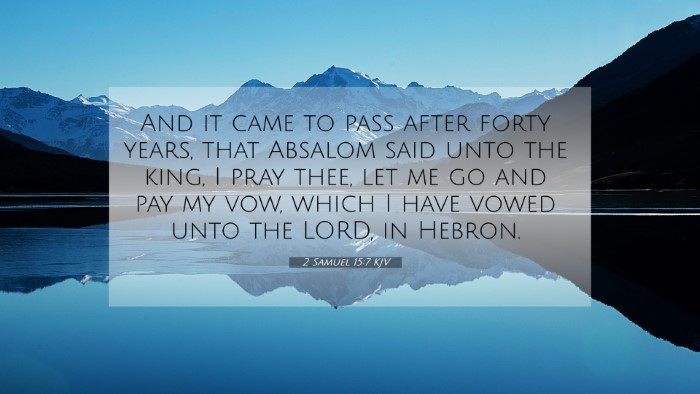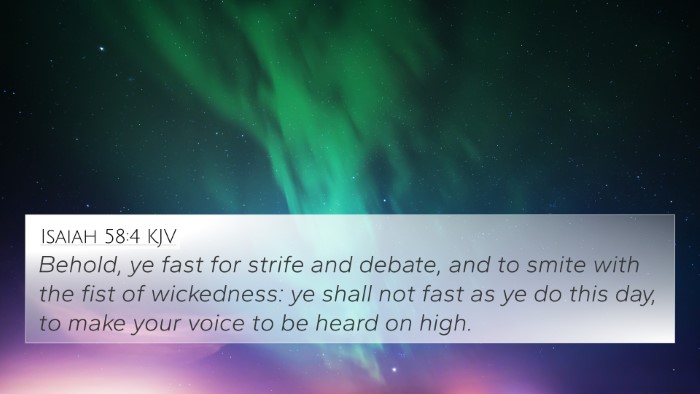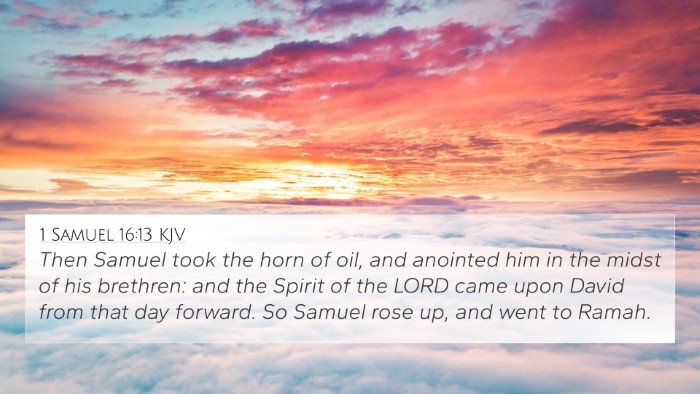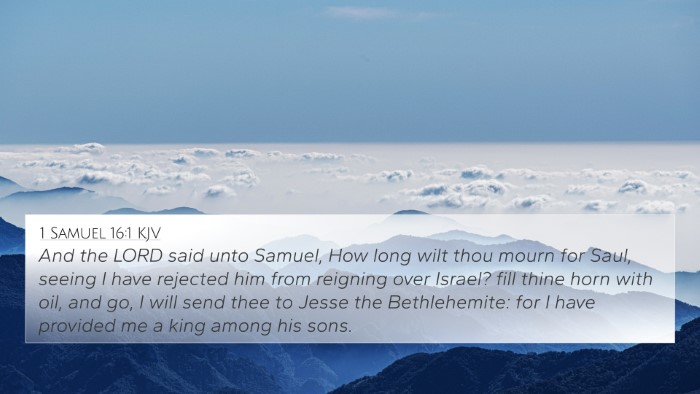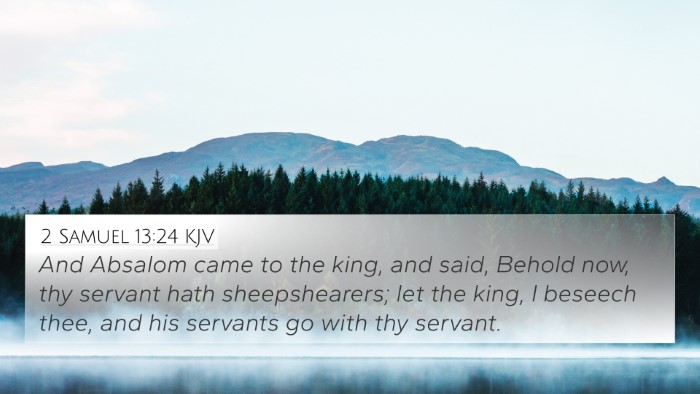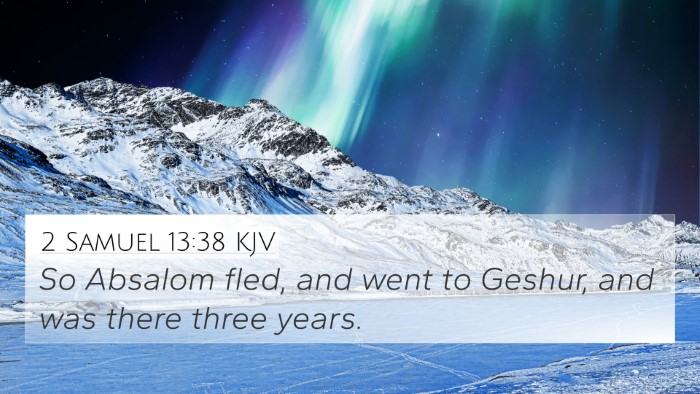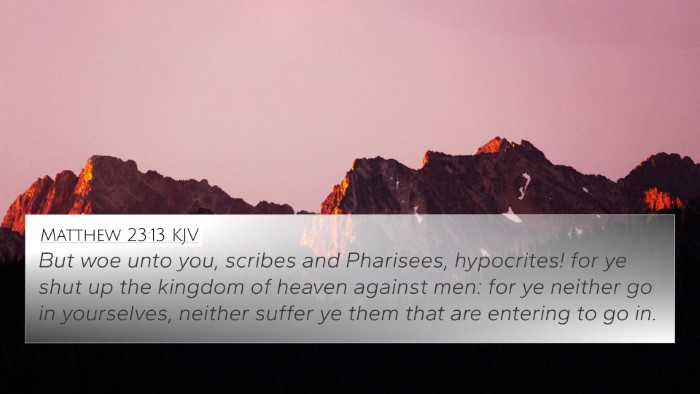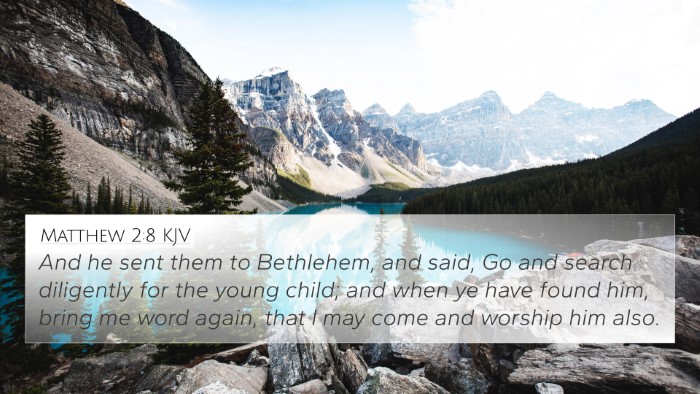Understanding 2 Samuel 15:7
Verse: 2 Samuel 15:7 - "And it came to pass after forty years, that Absalom said unto the king, I pray thee, let me go and pay my vow, which I have vowed unto the Lord, in Hebron."
Commentary Summary
This passage presents a pivotal moment in the life of Absalom and sets the stage for his rebellion against King David. The complexities of Absalom's character and motivations are unveiled through various public domain commentaries.
Insights from Matthew Henry
Matthew Henry's Commentary: Henry notes that Absalom's request to go to Hebron under the guise of fulfilling a vow demonstrates his cunning nature. His actions are part of a larger scheme to garner support for his rebellion, showing how ambition can corrupt one's intentions. Absalom's manipulation of religious duty to further his political aims highlights a common biblical theme of external appearances versus internal motives.
Insights from Albert Barnes
Albert Barnes' Notes: Barnes emphasizes the significance of the "forty years" mentioned in the verse, suggesting that it reflects a lengthy preparation period for Absalom's coup. He underlines the fact that Absalom’s vow could be interpreted as a pretext for political maneuvering, indicating that such duplicity is often present in the pursuits of power. The mention of Hebron is also focal, as it was a place of significance for David and Absalom, marking the territorial ambitions of the latter.
Insights from Adam Clarke
Adam Clarke's Commentary: Clarke provides a critical lens on the nature of vows in this context, commenting that Absalom’s use of a religious obligation to cloak his actual motives reveals a deeper spiritual failure. He connects this moment to the broader narrative of kingship and divine mandate in Israel, indicating that Absalom's actions are contrary to God’s will. Clarke’s notes draw connections to the themes of rebellion and divine judgment found throughout the scriptures.
Key Themes and Connections
- Deception in Leadership: A theme explored extensively by all commentators, emphasizing that leadership can become corrupted by personal ambition.
- Religious Vows and Integrity: The use of a vow as a cover for political motives raises questions about the sincerity of such commitments.
- Historical Context: The significance of Hebron serves as a connection point in the narratives of both David and Absalom.
- Consequences of Rebellion: The eventual downfall of Absalom serves as a cautionary tale within biblical literature.
- Divine Sovereignty: God’s overarching plan is often depicted in parallel stories of human folly, as apparent in this account.
Related Bible Cross-References
- 1 Samuel 8:5 - Desire for a king
- 2 Samuel 3:22-39 - Abner's defection
- 2 Samuel 15:1-6 - Absalom's deceit
- 2 Samuel 16:20-21 - Ahithophel's counsel
- Psalm 3:1-2 - David's prayer during Absalom's rebellion
- Proverbs 11:14 - Need for counsel in leadership
- 2 Samuel 18:14 - Absalom's demise
Conclusion
2 Samuel 15:7 is a profound verse that illustrates the complexity of Absalom’s character and the moral decline within the narrative of David’s reign. The insights drawn from various commentaries provide a multifaceted understanding of the text, touching on themes such as ambition, deception, and the ramifications of rebellion against divinely appointed authority.
This analysis can be useful for anyone engaging in Bible verse cross-references, cross-referencing Bible study methods, and identifying connections between Bible verses. Utilizing tools for Bible cross-referencing enriches the study of scripture and fosters a deeper understanding of inter-Biblical dialogue.

